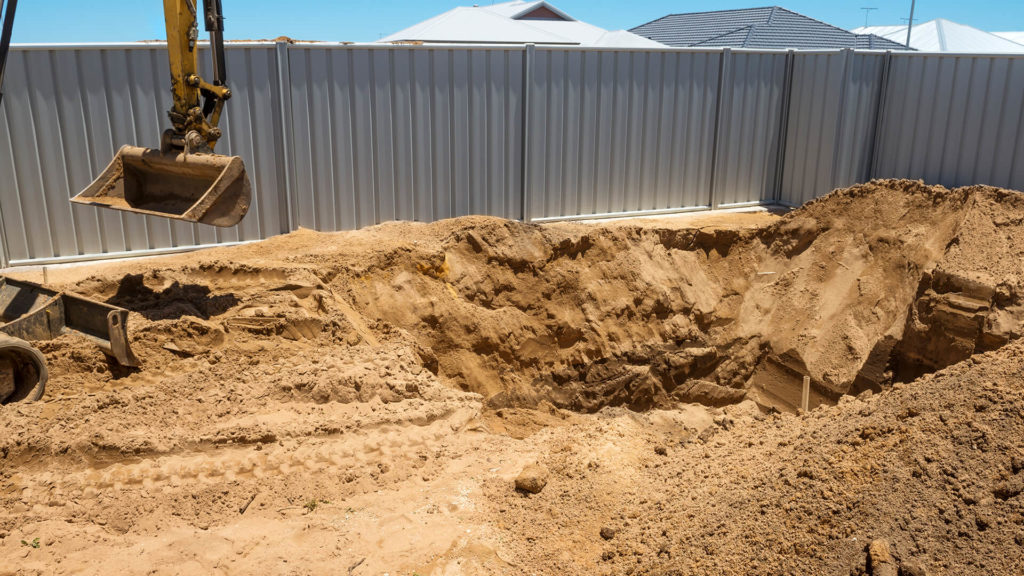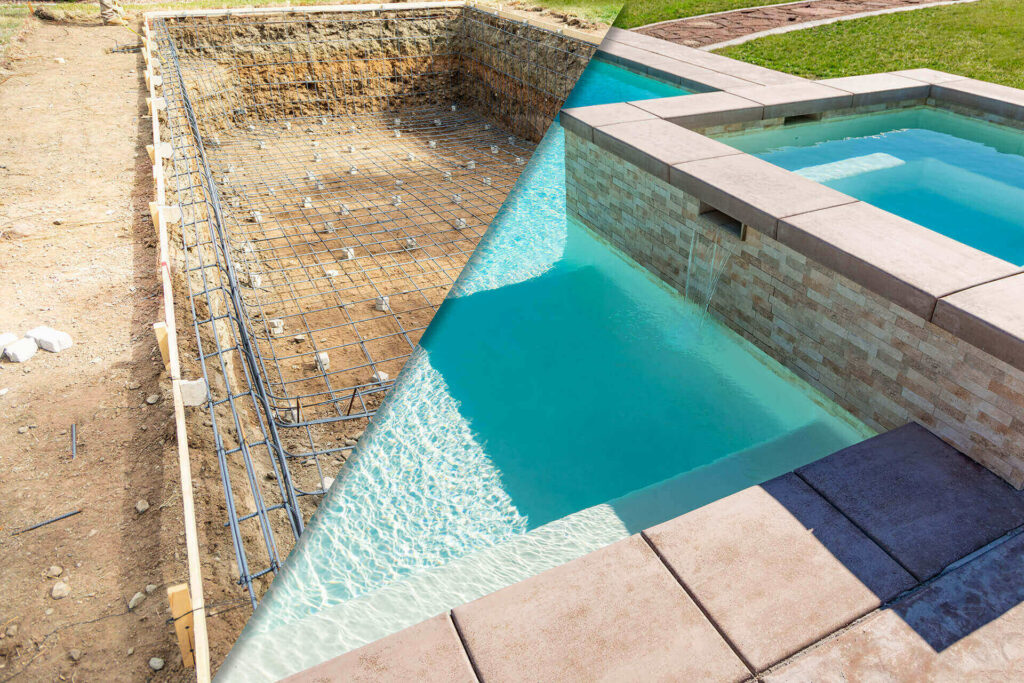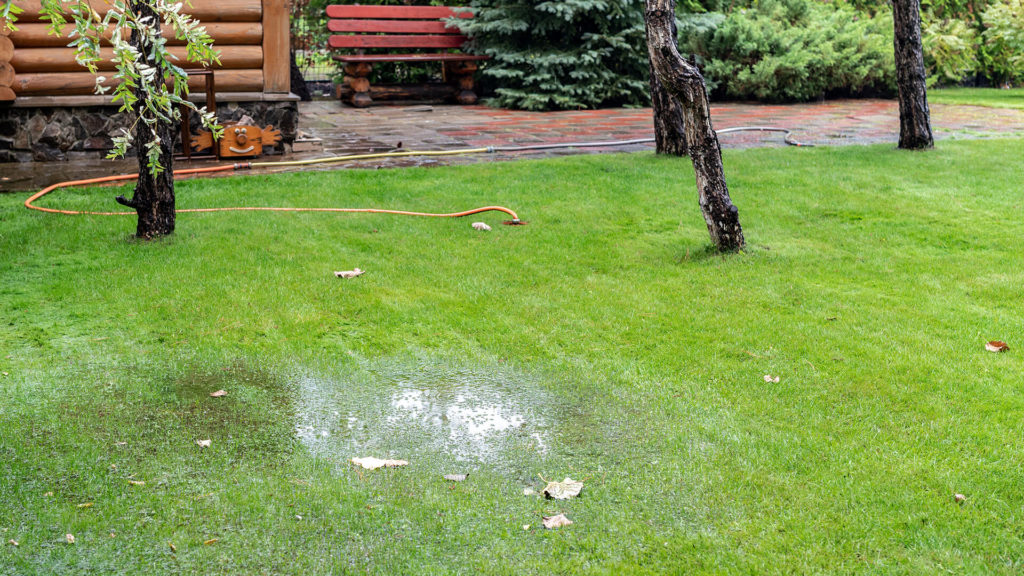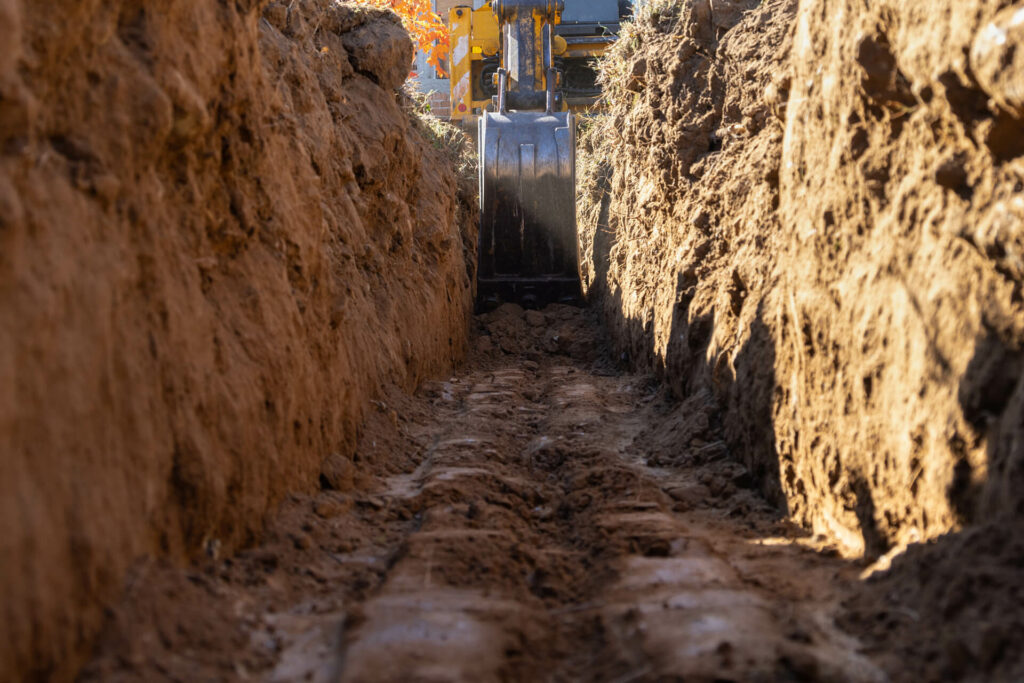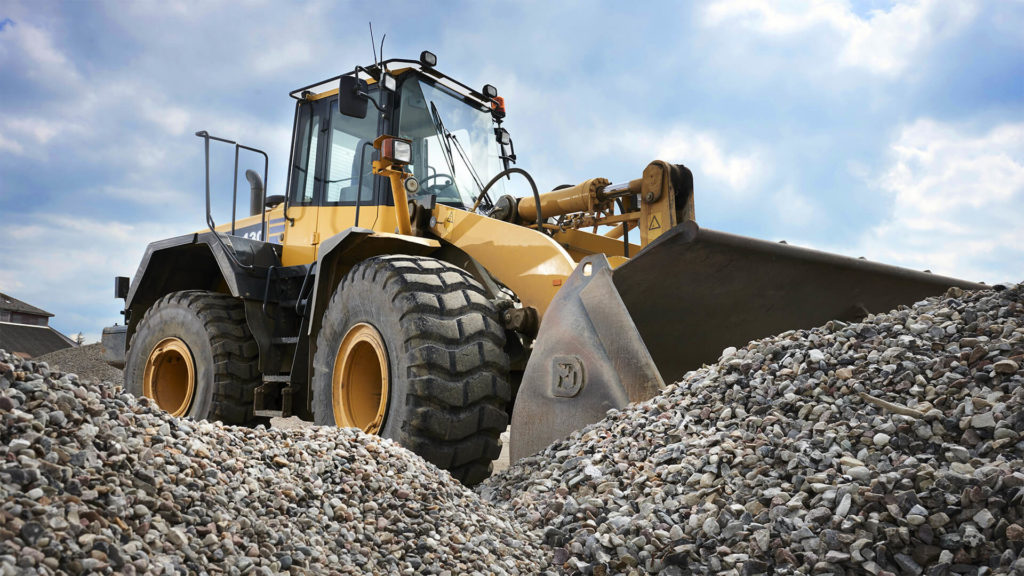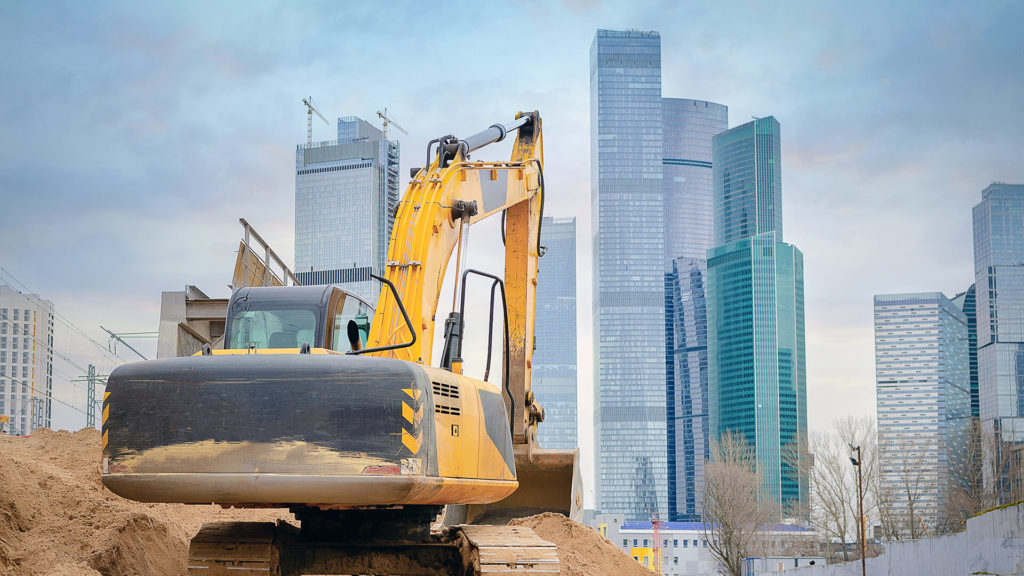Excavation is often one of the first steps in construction, no matter what you’re building. From digging out a basement, trenching for sewage and utility lines to preparing the foundation, they all involve excavation. Since we’re an expert in this subject with decades of experience and solid safety record, we have some trenching and excavation safety tips for you.
Potential Excavation Safety Hazards
Soil looks heavier than it seems. A cubic yard of dirt weighs about the same as a car. If unstable soil isn’t supported, it could collapse and injure people both under and above the surface. If heavy equipment or removed soil is stored too close to the excavation, it could fall into the hole or put too much pressure on trench walls. Workers and machines could also contact utility lines such as gas, power, and water, and workers could also be exposed to the hazardous atmosphere such as vapour or dust. Above the surface, there may be overhead power lines or structures nearby which heavy machinery could accidentally hit. Of course, workers could also be struck by moving machinery and flying debris. The list goes on…
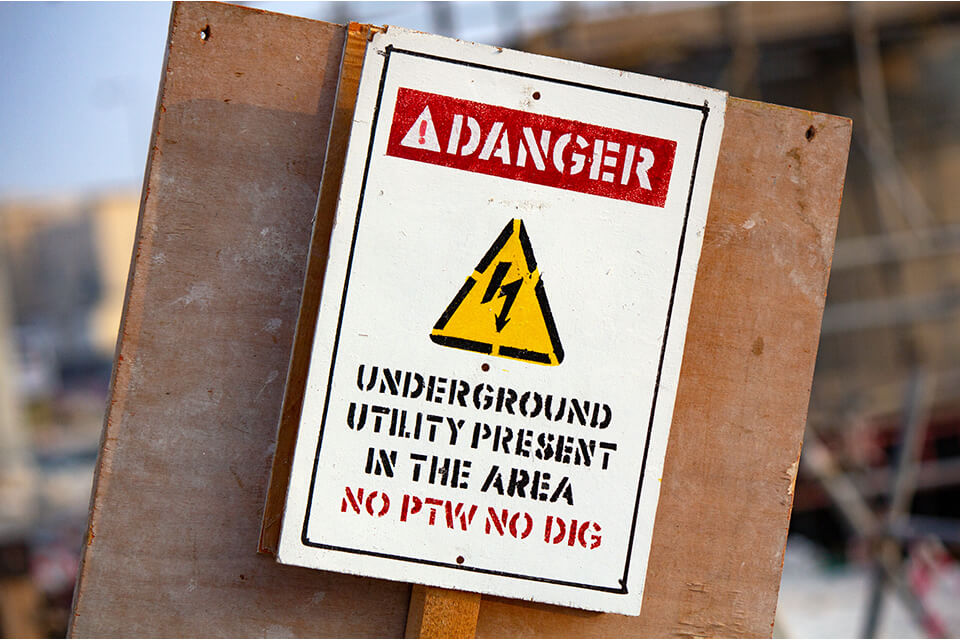
Excavation Safety Tips
- Identify the soil types to prevent associated risks. Soil properties may vary within a single trench.
- Locate and de-energize buried as well overhead services, such as gas and power lines.
- Obtain required permits.
- Check areas near the work site for equipment, objects, buildings, or structures that may affect the stability of the soil or put pressure on the trench walls.
- Provide adequate bracing for trench walls, also known as trench shoring.
- Test for hazardous atmosphere before entering.
- Remove water from excavation.
- Provide means of exit for workers inside.
- Plan for adverse weather and emergencies.
- Follow safety standards and practices.
- Place hazard marker or guardrail around the perimeter.
The list above is by no means comprehensive. It is best to follow your local occupational health and safety regulations related to excavation and trenching. For legislative requirements in Saskatchewan, please visit Saskatchewan Construction Safety Association’s website.
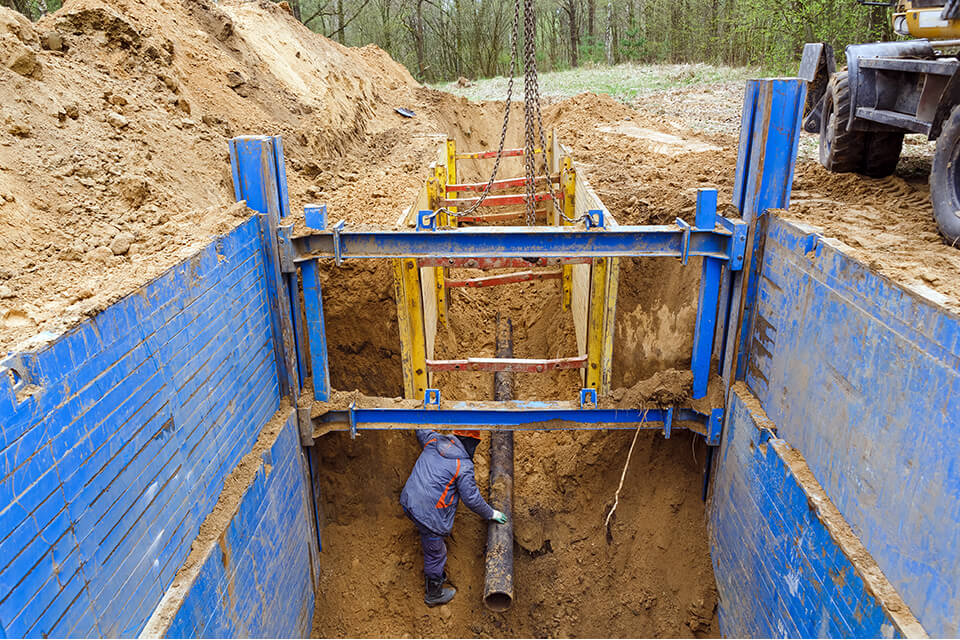
Hire a Professional
Now that you know the safety risks and complexity associated with excavation and trenching, why take on the risks and responsibilities yourself? Consider hiring a professional contractor like us instead. If you have a project in the Regina or southern Sask area, we would be glad to help you with any residential or commercial excavation. We have a large fleet of excavators capable of handling projects of all sizes, as well as a variety of aggregates you can backfill with. If you’re outside of our service area and need help choosing a reliable contractor, check out our article by following the link. We also have an article on demolition safety tips if you’re interested.

